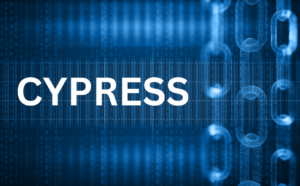ReactJS, a JavaScript library developed by Facebook, has become an essential tool for building user interfaces. With its code reusability, high performance, and strong community support, ReactJS offers opportunities for those looking to become Front-End developers. So, is learning ReactJS difficult, and what learning resources are available?
Read the following article to learn more about:
- The learning path for ReactJS
- Online resources like courses, YouTube channels, and reference books for learning ReactJS
- Frequently asked questions for beginners learning ReactJS
What is ReactJS?
ReactJS is an open-source JavaScript library created and maintained by Facebook. It is primarily used to build interactive user interfaces for single-page applications (SPAs) and mobile apps.
ReactJS operates on a component-based architecture, allowing for reusable UI elements. Components can be combined to create complex UIs and maintain a codebase that can be scaled.
Some core concepts in ReactJS include:
- Components: The building blocks of ReactJS applications, which are independent, reusable code blocks controlling specific parts of the UI. React supports functional and class components.
- JSX (JavaScript XML): A syntax extension to JavaScript, allowing you to write HTML-like code within JavaScript to define UI elements more clearly.
- Virtual DOM: React uses a virtual DOM to speed up rendering. When a component’s state changes, React compares the virtual DOM with the previous version, calculates the minimal changes needed, and updates the real DOM efficiently.
- State & Props: Used to manage and pass data between components. State represents data that changes over time, while props are inputs passed from parent components to child components.
- Lifecycle: The process of a component’s lifecycle, including mounting, updating, and unmounting, allowing code to run at specific points during the component’s lifecycle.
- Hooks: Introduced in React 16.8, hooks allow the use of state and other React features in functional components without needing to write classes.
What Should You Learn Before ReactJS?
Before diving into ReactJS, it’s important to have a solid foundation in several related areas. This will make learning ReactJS much easier.
- HTML & CSS: The fundamental technologies for front-end web development, working together to create fully functional web applications.
- JavaScript & ES6: Basic JavaScript features like arrow functions, let, const, class, and the “this” keyword, as well as ES6 features such as destructuring, spread/rest operators, template literals, and modules (import/export). Additionally, understanding TypeScript, a superset of JavaScript, is helpful.
- Node.js & NPM: Node.js is an environment for running JavaScript outside the browser, and NPM is used for managing project dependencies.
- Git & CLI: Git allows for collaboration and version control in development, while the Command Line Interface (CLI) is frequently used in ReactJS development.
ReactJS Online Courses: From Basic to Advanced
- Official ReactJS Website (React.dev): The official website provides accurate documentation and news related to ReactJS. It’s a great place to learn everything about ReactJS, from the basics to advanced features, including hooks, component lifecycle, and state management.
- Codecademy: Offers a detailed course on building interactive web applications with ReactJS. This course covers JSX, components, hooks, and practical programming patterns.
- Scrimba: Provides a beginner-friendly course focusing on modern React principles. It covers how to build static React websites and create projects such as travel logs and note-taking apps.
- Egghead.io: A platform for learning ReactJS, offering courses for beginners that cover key concepts such as JSX, DOM rendering, and building React forms.
- Epic React: This paid course is perfect for those who want to learn advanced ReactJS by building projects. It covers foundational knowledge and advanced hooks.
YouTube Channels for Learning ReactJS
Some popular YouTube channels for learning ReactJS include:
- Programming with Mosh: Offers beginner-friendly tutorials on ReactJS, starting with a “React JS – React Tutorial for Beginners” series.
- Codevolution: Provides a clear and organized learning path for ReactJS, from basic components to advanced topics like hooks and TypeScript.
- JavaScript Mastery: Features tutorials on using ReactJS alongside other technologies like Material UI, Node.js, and Next.js.
- Edureka: Offers a comprehensive ReactJS full course for beginners, which includes hands-on examples and projects.
Books for Learning ReactJS
If you prefer learning from books, here are a few great resources for learning ReactJS:
- The Road to React: A great book that covers ReactJS principles with hooks and helps you build full applications step by step.
- Beginning React: A beginner-friendly guide with practical exercises to help you quickly create powerful ReactJS applications.
- React.js Essentials: Focuses on building scalable and maintainable React applications.
- Learn React Hooks: This book provides in-depth knowledge about using React hooks for building complex UIs while maintaining code simplicity.
Frequently Asked Questions
- Why should you use ReactJS in web development?
ReactJS is efficient for web development because it simplifies creating, testing, and scaling applications using a single programming language. This results in better productivity, consistent workflows, and cost-effectiveness. - Is learning ReactJS difficult?
ReactJS can be challenging for beginners, but with a clear learning path, suitable courses, and proper resources, you can learn it more easily. Your prior knowledge of programming languages will also affect how quickly you can master ReactJS.
Conclusion
ReactJS offers many advantages, including code reusability, performance, flexibility, and faster page load times. If you want to advance your programming skills, investing time in learning ReactJS through courses, tutorials, and books will be incredibly beneficial. We hope this guide helps you find the resources that best suit your learning style.





